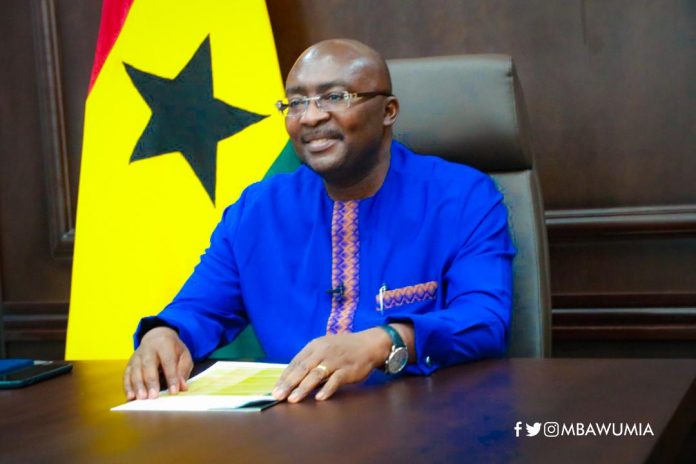Decades ago, holding a Ghanaian passport came with a sense of pride and fulfillment. Ghanaians who had traveled abroad before had distinguished themselves as competent professionals in their respective fields. The demand for Ghanaian professionals worldwide was high. The possession of a Ghanaian passport was the first step in identifying oneself as a Ghanaian and ready to cross the country’s shores to make a difference. The processes leading to the acquisition of a Ghanaian passport were then highly respected across the globe. As demand for more passports increased, acquiring a Ghanaian Passport got more complicated and confusing, leading to increased frustration from citizens.
The process increasingly got mired in a cartel-like system presided over by middlemen called ‘Goro boys.’ The passport application process turned into a gruesome exercise, not for the faint-hearted. One had to either pay exorbitant fees to Goro Boys or join long queues as early as 3:00 am daily to submit a passport application which sometimes took a day or two to submit and six to twelve months to receive the passport itself. Due to long delays in processing passport applications, the Goro Boys eventually started delivering fake passports to innocent citizens at exorbitant fees. The unsuspecting Ghanaian citizens who attempted to travel with the counterfeit passports obtained from the Goro boys got eventually apprehended and humiliated by immigration officials at the port of entry. The Ghanaian passport gradually lost its integrity and respect in the international community.
Successive Governments, over time, tried to address this menace. During the 2016 presidential campaign, the NPP promised to streamline the passport acquisition process and make it easy to acquire. Upon assuming office in 2017, the Akufo-Addo government embarked on a series of policy interventions to make it less painful and less torturous for citizens to acquire a passport in the shortest time possible and improve the Ghanaian passport’s credibility in the world.
The first intervention was to bring passport application centers close to the people to prevent them from traveling a long distance to get their biometric taken for the passport applications. To achieve this, the Ministry of Foreign Affairs and Regional Integration established new passport application centers. These new passport application centers had the added advantage of reducing pressure on the passport application center in Accra. Thus, staff in Accra could focus on responding to passport applications as fast as possible. The government further increased the validity of the ordinary passport from five to ten years. This single intervention has reduced the burden on Ghanaians to renew their passports every five (5) years, thus reducing the workload on passport office staff.
The Ministry of Foreign Affairs further established three premium passport application centers in Accra, Kumasi, and Tamale. The premium application centers allowed applicants to fast-track their registration process within 30 minutes at an additional fee of GHS 50. The premium application centers have been highly convenient for urgent situations. Patronage for these premium centers is very high.
After establishing the centers, the Akufo-Addo government proceeded to eliminate the influence of the Goro boys by fully digitizing the passport application process. Citizens can now submit their passport application online or renew their expiring passport in the comfort of their home. This initiative has not only made passport forms accessible to all citizens but also made payment easy. Applicants can now pay for passport service via the ghana.gov payment platforms using mobile money, credit card, visa card, QR codes, and other forms of acceptable electronic payment method.
Unlike the old application, the online passport application gives the applicant leeway to select a passport processing center of choice and schedule a convenient time to meet with a passport office staff at one of the nine (9) application centers. The introduction of the online application process has increased the productivity of passport office staff while increasing the satisfaction level of passport applicants. The Accra Passport Application Centre processes at least two hundred and fifty (250) applications daily, and the Premium Center processes on average four hundred (400) applications daily on average.
The next phase of the policy intervention on the passport acquisition process is to leverage the principle of capturing data once and using it everywhere. To achieve this, the government is integrating the NIA card into the passport acquisition process. Every Ghanaian with a GhanaCard will automatically qualify to apply and receive a passport using existing data captured in the NIA system. With this intervention, it will be difficult for an individual to have two identities: One identity with NIA on the GhanaCard and another identity with a Ghanaian passport. This single intervention will significantly increase the integrity of our passports, speed up the passport acquisition process, and save Ghanaian citizens a considerable amount of time and money.
The last step in digitizing the passport acquisition process is to enable the e-passport module on the Ghana card. The GhanaCard is fully compliant with the International Civil Aviation Organization (ICAO) standards and the Ecowas protocol for e-passport. The National Identification Authority, the National Information Technology Authority, the Ministry of Communication, and the Ministry of Foreign Affairs work together to enable the e-passport module on the card. The first rollout will allow Ghanaians to travel within the ECOWAS subregion with the GhanaCard. Eventually, when this digitization of the passport process is completed, Ghanaians can travel around the world with their Ghanacard without a passport book.
In summary, digitizing the passport application process, establishing regional and premium application centers, and integrating the GhanaCard into the passport application process has eliminated the nefarious activities of Goro boys, eliminated corruption in the passport application processes, increased productivity of the passport office staff, increased citizen satisfaction in the service delivery of the passport office, increased the credibility of the Ghanaian passport in the international community, saved passport applicants money, and reduced the time it takes for citizens to acquire their passport.
Professor Stephen Addai summed it best when he said: “I must give credit to Dr. Bawumia for his digitization move. There is practically no corruption at the passport office.”
And one more thing, please wear your mask to save a life. We are in this together!!!

